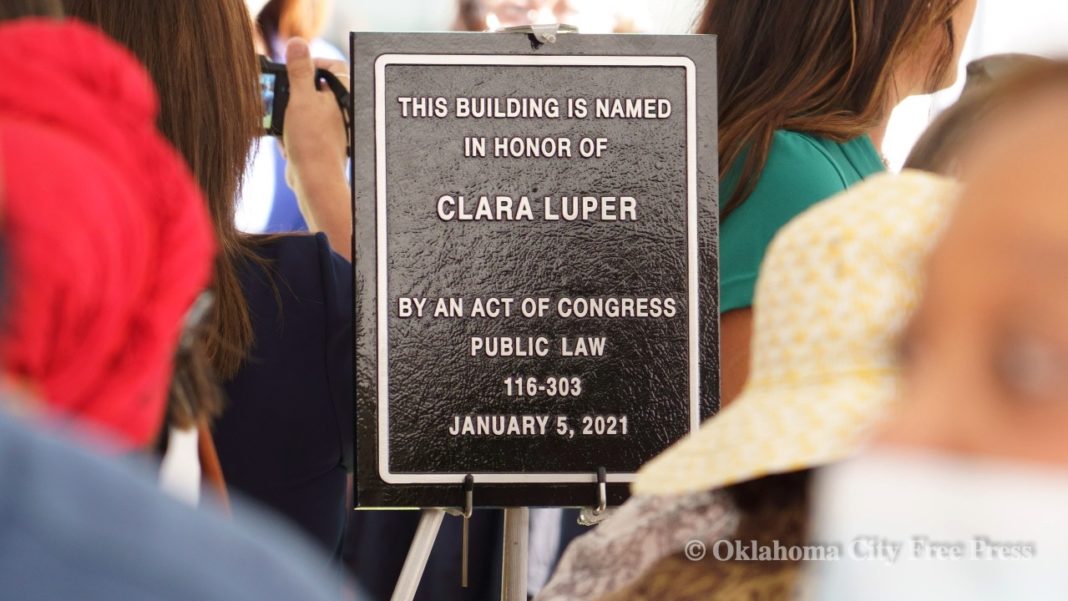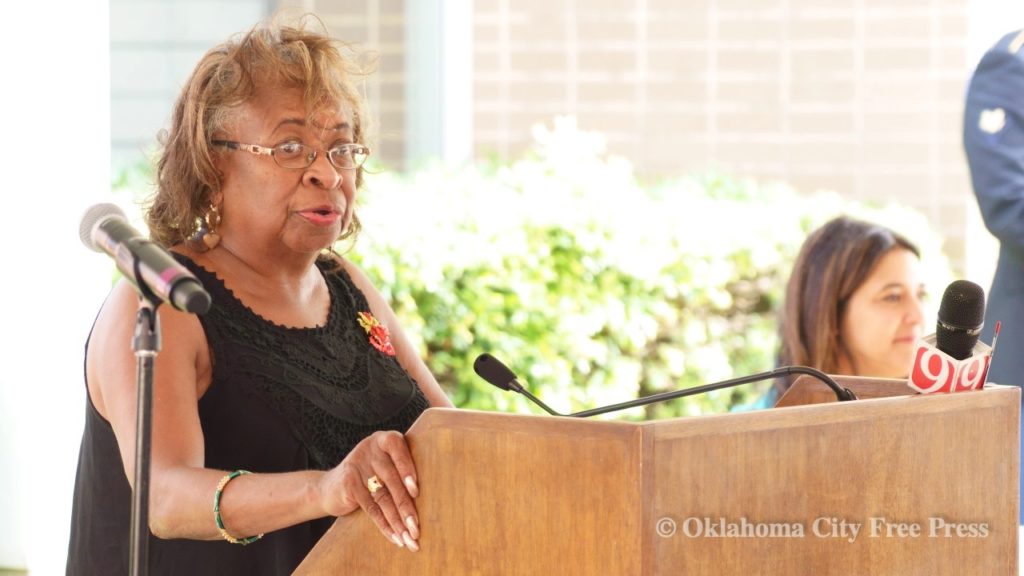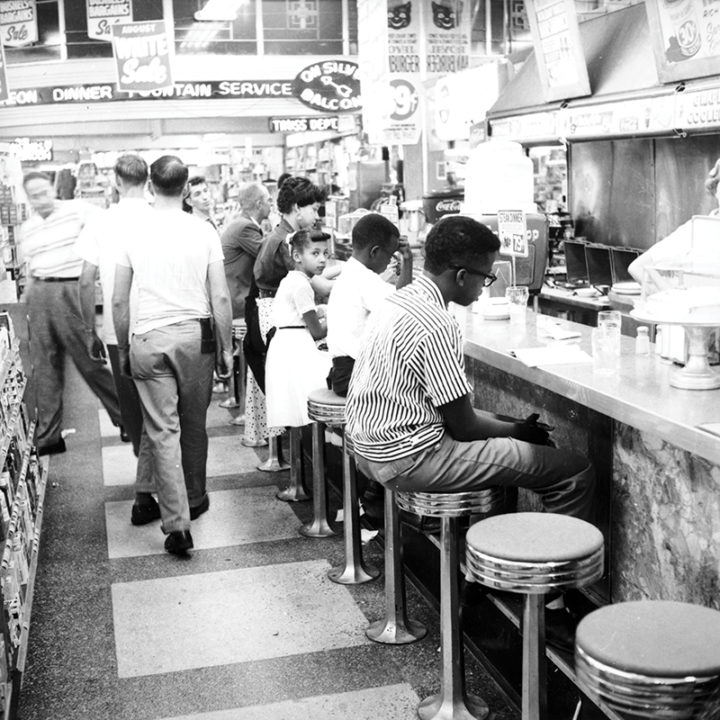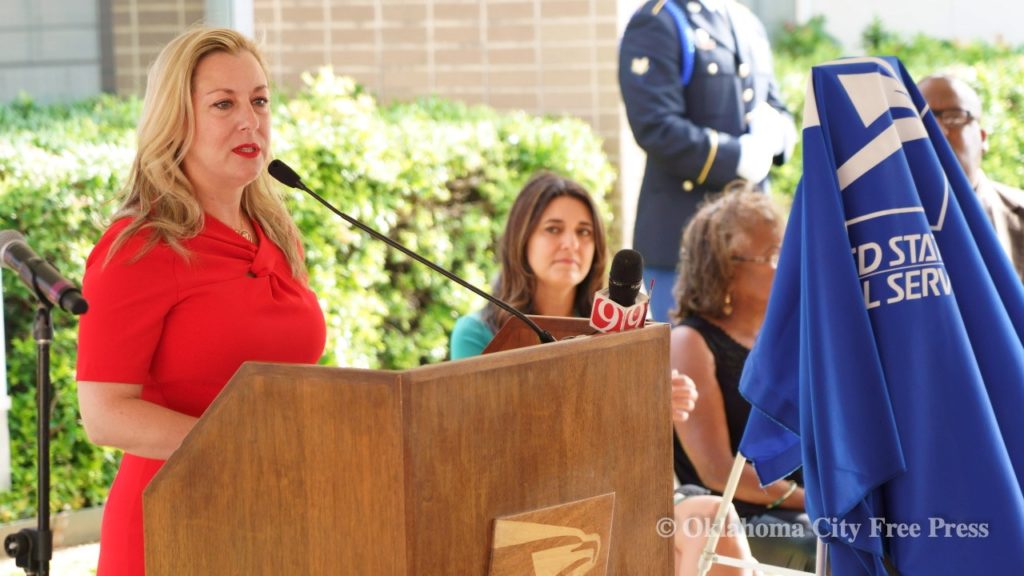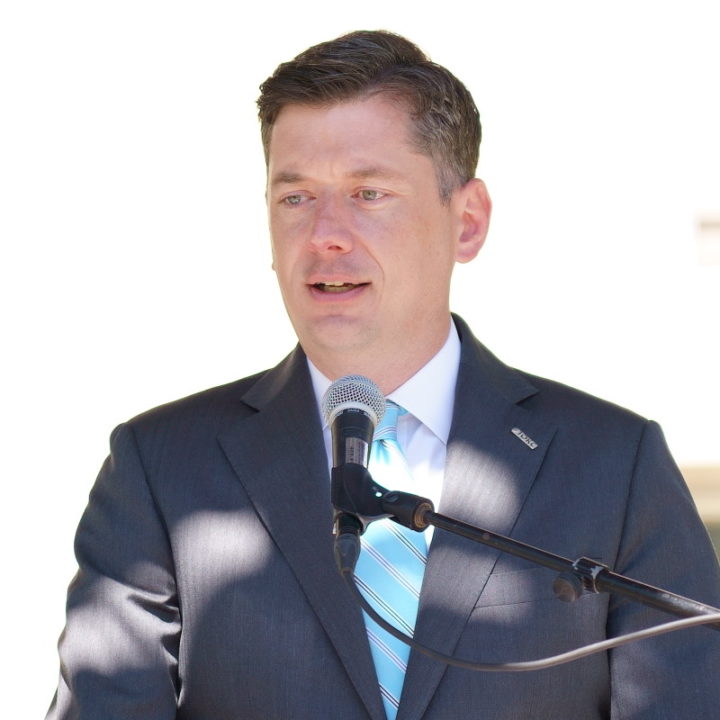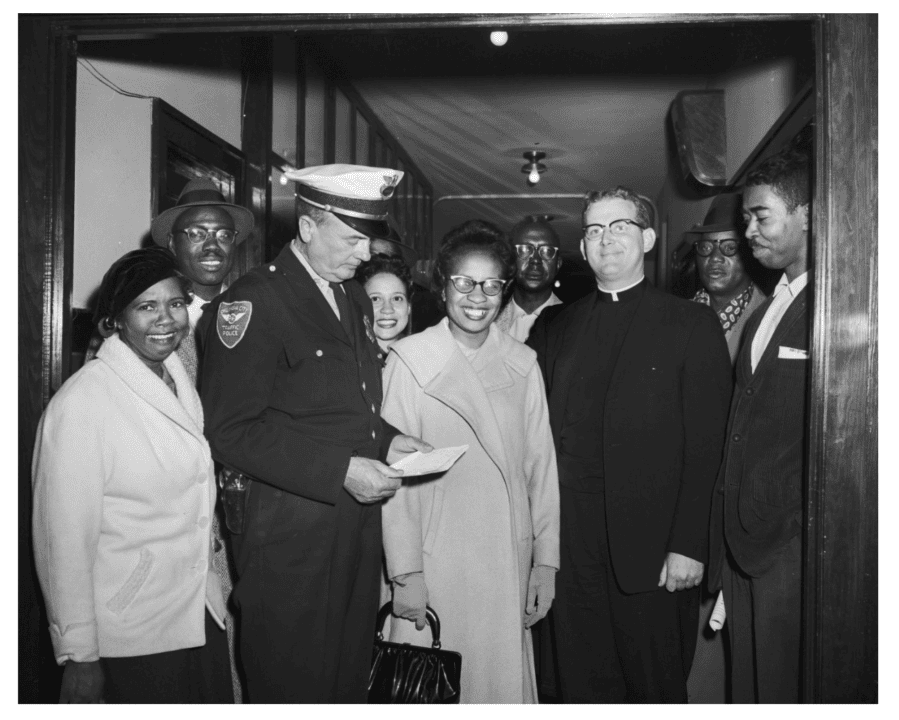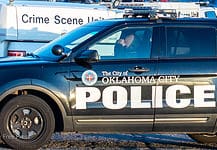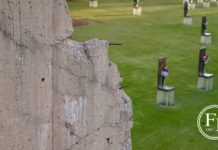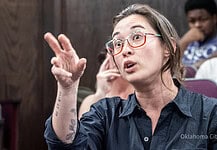Last Updated on August 23, 2021, 11:25 AM | Published: August 22, 2021
OKLAHOMA CITY (Free Press) — The Center City Post Office is now officially the Clara Luper Post Office in honor of one of Oklahoma City’s best-known Black civil rights leaders.
Luper is best known for organizing and leading NAACP Youth Council lunch counter sit-ins at Katz Drug in downtown OKC that began a successful six-year process of desegregating public restaurants and other public places in the city.
The first Katz Drug Lunch Counter sit-in was August 19, 1958, a full four years before four black college students in Greensboro, North Carolina held a sit-in at a drug store lunch counter there and was widely reported nationally.
Saturday a crowd gathered to dedicate the newly-named Clara Luper Post Office between N.W. 5th and 6th on Harvey and just across the street from the Oklahoma City National Memorial and Museum. The event was part of a weekend of activities held each year to commemorate the first sit-in on August 19, 1958.
“I’m so glad that we sat down here in Oklahoma City because if we had not sat down here, young people throughout this nation would have never stood up,” said Clara Luper’s daughter Marilyn Hildreth to a standing ovation and shouts from the crowd Saturday.
Hildreth, who joined the other youth who Luper led, challenged those who came to step forward and take action for others asking what they have done and who they have helped to educate.
Challenging segregation
Luper hand-picked the youth and adults who would accompany her to the busy Katz Drug Store in the heart of downtown Oklahoma City’s Main Street shopping district well before there were any malls and before there was “fast food.” In fact, drug store lunch counters provided what would later be known as “fast food” including hamburgers, sandwiches, and soft drinks.
Katz Drug was Luper’s pick precisely because it was one of the busiest drug store lunch counters in Oklahoma City and the most likely to get attention from the press.
They came and filled the seats during a busy time of the day and attempted to order. They were not arrested at first but were not served, either.
And, most importantly, with the sit-in, no one else could sit and buy food, either. It had an economic impact on the business of Katz Drug.
In her challenge of segregation in Oklahoma City but also in the state and nation Luper was arrested 26 times.
Congresswomen
Sitting Congresswoman Stephanie Bice organized and led the event. Free Press talked to her briefly before the ceremony.
“This is an incredible moment to be able to recognize Clara Luper and the contributions that she made to the Oklahoma City area. One of the original Civil Rights movement leaders, she’s become an icon and it’s a real honor to be able to celebrate her today,” said Bice.
Bice invited former Congresswoman Kendra Horn to come and speak because it was Horn who pushed a bill through the House to rename that Post Office so that there would be a remembrance of what Luper did.
Senator James Lankford then shepherded the bill through the Senate and then President Donald Trump signed it into law making the name change.
“It is so important that we name Clara Luper’s name, that we recognize the sit-inners and all of those who stood with them to stand up and challenge injustice wherever it stood, wherever it was said, and that we still have work to do,” said Horn in her speech.
“It is so critical that we acknowledge what the power of hatred can do to tear us down as we stand right here,” said Horn. “It is even more important that we stand up for what is right and what is good, and that we remember the work that has been done to change the face of our city.”
OKC Mayor Holt
As Mayor of Oklahoma City since 2018, David Holt has gone on the record each year to clearly acknowledge the evil perpetrated on Oklahoma City’s people by white supremacist Timothy McVeigh when he bombed the Alfred P. Murrah Federal Building in 1995.
He did so again Saturday in his remarks at the post office renaming ceremony which was just west across Harvey from the Oklahoma City National Memorial.
Holt named off the different places around the city that have been given Luper’s name such as the new OKC Public Schools administration building.
“The name Clara Luper reminds us of how far we have come and how far we must go,” said Holt.
And, then, gesturing toward the Post Office behind him, Holt asked and answered his own question.
“Do you know why the Clara Luper Post Office building behind me appears relatively new? It is because an avowed white supremacist blew up the previous building.”
He was referring to the previous building’s wrecking by the concussion of McVeigh’s truck bomb about half of a block away.
“The bombing was a symbol of dehumanization and the depths of evil to which humans are capable,” said Holt. “Clara Luper is a symbol of the best humanity has to offer.”
“And so now, the name of a black woman who was arrested two dozen times by this city, while fighting for racial equality, is now emblazoned upon a public building that was once blown up by white supremacists,” Holt said to applause and shouts.
“Icon”
Lee E. Cooper, Jr., pastor of Prospect Missionary Baptist Church on the east side and a native of the area, talked with Free Press before the ceremony.
He referred to Luper as an “icon who not only changed our community not only changed our state but was instrumental in actually changing the entire scope and landscape of these United States.”
“And for that reason, this is really impactful in terms of how our hearts have acknowledged the fact that Clara Luper did that right here in Oklahoma City.”
“Work to do”
Jabee talked with us after the ceremony about what the renaming meant to him.
“It is very important to have a black woman’s name associated with a building in downtown Oklahoma City — for my daughters to come and see and their kids to come and see, it just means a lot.”
We asked if he thought the work was done.
“Oh, definitely not,” said Jabee. “The work isn’t done I think that we can we pull up and come to the to the post office and see her name and people can Google it, but I think that the important thing is to continue to teach that history to our kids and educate people in schools about who she was and the things she did, too.”
“Having her name here means a lot, but we still have so much work to do.”
Garland Pruitt, president of the Oklahoma City NAACP had similar sentiments.
“The challenge that we have even today is standing up, speaking up, and demanding something different than what you see and experience every single day.”
Founder, publisher, and editor of Oklahoma City Free Press. Brett continues to contribute reports and photography to this site as he runs the business.
